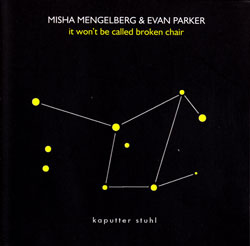
Two improvisations with Misha Mengelberg on piano & Evan Parker on tenor saxophone, one in concert and the other before the audience arrived, recorded at the Bimhuis in Amsterdam in 2006.
Out of Stock
Quantity in Basket: None
Log In to use our Wish List
Shipping Weight: 4.00 units
Sample The Album:
Misha Mengelberg-piano
Evan Parker-tenor saxophone
Click an artist name above to see in-stock items for that artist.
Color sleeve insert with photos, 4 page booklet with liner notes by Steve Beresford.
UPC: 5030243110728
Label: psi
Catalog ID: 11.07
Squidco Product Code: 14907
Format: CD
Condition: New
Released: 2011
Country: Great Britain
Packaging: Cardstock 3 page foldover
Recorded at Bimhuis, in Amsterdam, The Netherlands, on February 18th, 2006, by Pete Dowling.
"Two improvisations on piano & tenor saxophone, one in concert and the other before the audience arrived, recorded at the Bimhuis in Amsterdam in 2006. The sleeve design is derived from work by the late Tomas Schmit whose work is much loved by both MM and EP."-psi
Color sleeve insert with photos, 4 page booklet with liner notes by Steve Beresford.
Artist Biographies
• Show Bio for Misha Mengelberg "Misha Mengelberg (5 June 1935 - 3 March 2017) was a Dutch jazz pianist and composer. A prominent figure in post-WWII European Jazz, Megelberg is known for his forays into free improvisation, for bringing humor into his music, and as a leading interpreter of songs by fellow pianists Thelonious Monk and Herbie Nichols. Mengelberg was born in Kiev, Ukrainian SSR, the son of the Dutch conductor Karel Mengelberg (born Karel Willem Joseph Mengelberg; 18 July 1902, Utrecht - 11 July 1984, Amsterdam) and grand-nephew of conductor Willem Mengelberg. Karel Mengelberg was a Dutch composer and conductor, who worked in Berlin, Barcelona, Kiev and Amsterdam. A notable work of his was 'Catalunya Renaixent', written for the Banda Municipal of Barcelona in 1934. Misha's family moved back to the Netherlands in the late 1930s and he began learning the piano at age five. Mengelberg briefly studied architecture before entering the Royal Conservatory in The Hague, where he studied music from 1958-64. While there he won the first prize at a jazz festival in Loosdrecht and became associated with Fluxus. His early influences included Thelonious Monk, Duke Ellington and John Cage, whom he heard lecture at Darmstadt. Mengelberg won the Gaudeamus International Composers Award in 1961. Among his first recordings was among Eric Dolphy's last, Last Date (1964). Also on that record was the drummer Han Bennink, and the two of them, together with saxophonist Piet Noordijk, formed a quartet which had a number of different bassists, and which played at the Newport Jazz Festival in 1966. In 1967 he co-founded the Instant Composers Pool, an organisation which promoted avant garde Dutch jazz performances and recordings, with Bennink and Willem Breuker. He was co-founder of STEIM in Amsterdam in 1969. Mengelberg played with a large variety of musicians. He often performed in a duo with fellow Dutchman Bennink, with other collaborators including Derek Bailey, Peter Brötzmann, Evan Parker, Anthony Braxton, and (on the flip side of a live recording with Dolphy) his pet parrot. He was also one of the earliest exponents of the work of the once-neglected pianist Herbie Nichols. He also wrote music for others to perform (generally leaving some room for improvisation) and oversaw a number of music theatre productions, which usually included a large element of absurdist humour. A 2006 DVD release, Afijn (ICP/Data), is a primer on Mengelberg's life and work, containing an 80-minute documentary and additional concert footage.[citation needed] Mengelberg died in Amsterdam on 3 March 2017, aged 81, from undisclosed causes." ^ Hide Bio for Misha Mengelberg • Show Bio for Evan Parker "Evan Parker was born in Bristol in 1944 and began to play the saxophone at the age of 14. Initially he played alto and was an admirer of Paul Desmond; by 1960 he had switched to tenor and soprano, following the example of John Coltrane, a major influence who, he would later say, determined "my choice of everything". In 1962 he went to Birmingham University to study botany but a trip to New York, where he heard the Cecil Taylor trio (with Jimmy Lyons and Sunny Murray), prompted a change of mind. What he heard was "music of a strength and intensity to mark me for life ... l came back with my academic ambitions in tatters and a desperate dream of a life playing that kind of music - 'free jazz' they called it then." Parker stayed in Birmingham for a time, often playing with pianist Howard Riley. In 1966 he moved to London, became a frequent visitor to the Little Theatre Club, centre of the city's emerging free jazz scene, and was soon invited by drummer John Stevens to join the innovative Spontaneous Music Ensemble which was experimenting with new kinds of group improvisation. Parker's first issued recording was SME's 1968 Karyobin, with a line-up of Parker, Stevens, Derek Bailey, Dave Holland and Kenny Wheeler. Parker remained in SME through various fluctuating line-ups - at one point it comprised a duo of Stevens and himself - but the late 1960s also saw him involved in a number of other fruitful associations. He began a long-standing partnership with guitarist Bailey, with whom he formed the Music Improvisation Company and, in 1970, co-founded Incus Records. (Tony Oxley, in whose sextet Parker was then playing, was a third co-founder; Parker left Incus in the mid-1980s.) Another important connection was with the bassist Peter Kowald who introduced Parker to the German free jazz scene. This led to him playing on Peter Brötzmann's 1968 Machine Gun, Manfred Schoof's 1969 European Echoes and, in 1970, joining pianist Alex von Schlippenbach and percussionist Paul Lovens in the former's trio, of which he is still a member: their recordings include Pakistani Pomade, Three Nails Left, Detto Fra Di Noi, Elf Bagatellen and Physics. Parker pursued other European links, too, playing in the Pierre Favre Quartet (with Kowald and Swiss pianist Irene Schweizer) and in the Dutch Instant Composers Pool of Misha Mengelberg and Han Bennink. The different approaches to free jazz he encountered proved both a challenging and a rewarding experience. He later recalled that the German musicians favoured a "robust, energy-based thing, not to do with delicacy or detailed listening but to do with a kind of spirit-raising, a shamanistic intensity. And l had to find a way of surviving in the heat of that atmosphere ... But after a while those contexts became more interchangeable and more people were involved in the interactions, so all kinds of hybrid musics came out, all kinds of combinations of styles." A vital catalyst for these interactions were the large ensembles in which Parker participated in the 1970s: Schlippenbach's Globe Unity Orchestra, Chris McGregor's Brotherhood of Breath, Barry Guy's London Jazz Composers Orchestra (LJCO) and occasional big bands led by Kenny Wheeler. In the late 70s Parker also worked for a time in Wheeler's small group, recording Around Six and, in 1980, he formed his own trio with Guy and LJCO percussionist Paul Lytton (with whom he had already been working in a duo for nearly a decade). This group, together with the Schlippenbach trio, remains one of Parker's top musical priorities: their recordings include Tracks, Atlanta, Imaginary Values, Breaths and Heartbeats, The Redwood Sessions and At the Vortex. In 1980, Parker directed an Improvisers Symposium in Pisa and, in 1981, he organised a special project at London's Actual Festival. By the end of the 1980s he had played in most European countries and had made various tours to the USA, Canada, Australia, New Zealand and Japan. ln 1990, following the death of Chris McGregor, he was instrumental in organising various tributes to the pianist and his fellow Blue Notes; these included two discs by the Dedication Orchestra, Spirits Rejoice and lxesa. Though he has worked extensively in both large and small ensembles, Parker is perhaps best known for his solo soprano saxophone music, a singular body of work that in recent years has centred around his continuing exploration of techniques such as circular breathing, split tonguing, overblowing, multiphonics and cross-pattern fingering. These are technical devices, yet Parker's use of them is, he says, less analytical than intuitive; he has likened performing his solo work to entering a kind of trance-state. The resulting music is certainly hypnotic, an uninterrupted flow of snaky, densely-textured sound that Parker has described as "the illusion of polyphony". Many listeners have indeed found it hard to credit that one man can create such intricate, complex music in real time. Parker's first solo recordings, made in 1974, were reissued on the Saxophone Solos CD in 1995; more recent examples are Conic Sections and Process and Reality, on the latter of which he does, for the first time, experiment with multi-tracking. Heard alone on stage, few would disagree with writer Steve Lake that "There is, still, nothing else in music - jazz or otherwise - that remotely resembles an Evan Parker solo concert." While free improvisation has been Parker's main area of activity over the last three decades, he has also found time for other musical pursuits: he has played in 'popular' contexts with Annette Peacock, Scott Walker and the Charlie Watts big band; he has performed notated pieces by Gavin Bryars, Michael Nyman and Frederic Rzewski; he has written knowledgeably about various ethnic musics in Resonance magazine. A relatively new field of interest for Parker is improvising with live electronics, a dialogue he first documented on the 1990 Hall of Mirrors CD with Walter Prati. Later experiments with electronics in the context of larger ensembles have included the Synergetics - Phonomanie III project at Ullrichsberg in 1993 and concerts by the new EP2 (Evan Parker Electronic Project) in Berlin, Nancy and at the 1995 Stockholm Electronic Music Festival where Parker's regular trio improvised with real-time electronics processed by Prati, Marco Vecchi and Phillip Wachsmann. "Each of the acoustic instrumentalists has an electronic 'shadow' who tracks him and feeds a modified version of his output back to the real-time flow of the music." The late 80s and 90s brought Parker the chance to play with some of his early heroes. He worked with Cecil Taylor in small and large groups, played with Coltrane percussionist Rashied Ali, recorded with Paul Bley: he also played a solo set as support to Ornette Coleman when Skies of America received its UK premiere in 1988. The same period found Parker renewing his acquaintance with American colleagues such as Anthony Braxton, Steve Lacy and George Lewis, with all of whom he had played in the 1970s (often in the context of London's Company festivals). His 1993 duo concert with Braxton moved John Fordham in The Guardian to raptures over "saxophone improvisation of an intensity, virtuosity, drama and balance to tax the memory for comparison". Parker's 50th birthday in 1994 brought celebratory concerts in several cities, including London, New York and Chicago. The London performance, featuring the Parker and Schlippenbach trios, was issued on a highly-acclaimed two-CD set, while participants at the American concerts included various old friends as well as more recent collaborators in Borah Bergman and Joe Lovano. The NYC radio station WKCR marked the occasion by playing five days of Parker recordings. 1994 also saw the publication of the Evan Parker Discography, compiled by ltalian writer Francesco Martinelli, plus chapters on Parker in books on contemporary musics by John Corbett and Graham Lock. Parker's future plans involve exploring further possibilities in electronics and the development of his solo music. They also depend to a large degree on continuity of the trios, of the large ensembles, of his more occasional yet still long-standing associations with that pool of musicians to whose work he remains attracted. This attraction, he explained to Coda's Laurence Svirchev, is attributable to "the personal quality of an individual voice". The players to whom he is drawn "have a language which is coherent, that is, you know who the participants are. At the same time, their language is flexible enough that they can make sense of playing with each other ... l like people who can do that, who have an intensity of purpose." " ^ Hide Bio for Evan Parker
11/18/2024
Have a better biography or biography source? Please Contact Us so that we can update this biography.
11/18/2024
Have a better biography or biography source? Please Contact Us so that we can update this biography.
Track Listing:
1. Broken Chair 26:20
2. At the Magician's 34:13
Improvised Music
Jazz
European Improv, Free Jazz & Related
London & UK Improv & Related Scenes
Parker, Evan
EMANEM & psi
Recordings by or featuring Reed & Wind Players
Duo Recordings
Instant Rewards
Search for other titles on the label:
psi.



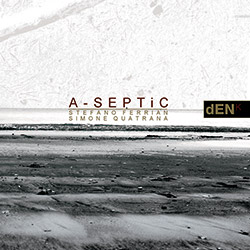


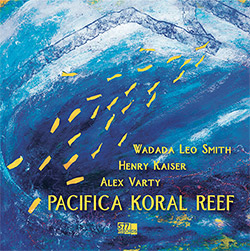

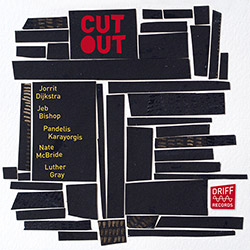



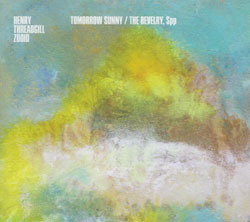
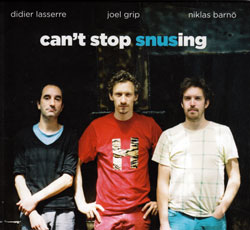
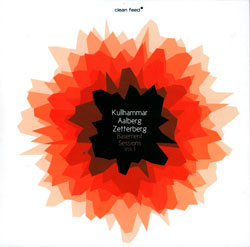
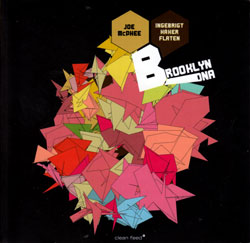
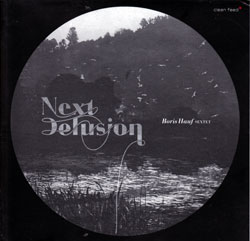
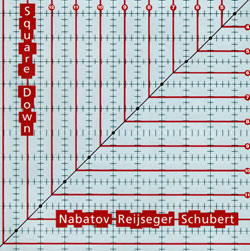
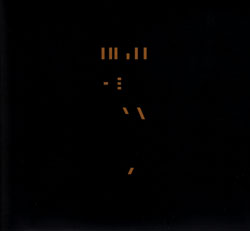
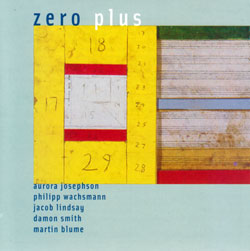
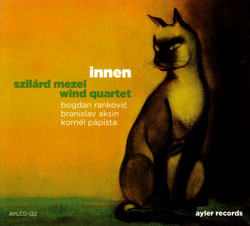
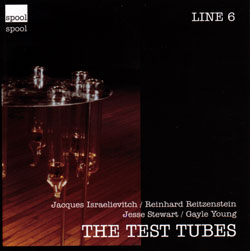
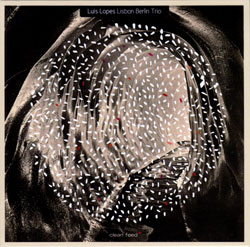
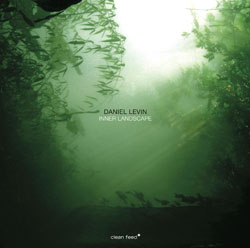
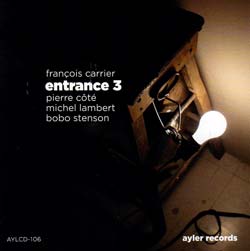
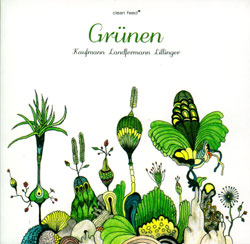
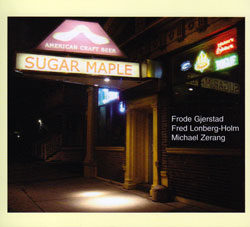
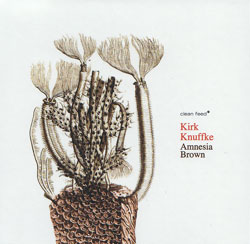














![Barker / Parker / Irabagon: Bakunawa [VINYL]](https://www.teuthida.com/productImages/misc4/35533.jpg)
![Blaser, Samuel / Marc Ducret / Peter Bruun: Dark Was The Night, Cold Was The Ground [VINYL 10-inch]](https://www.teuthida.com/productImages/misc4/35492.jpg)










![Warren, Kenny (Warren / Hoffman / Ellman): Sweet World [VINYL]](https://www.teuthida.com/productImages/misc4/35451.jpg)


![Blake, Ran / Dave Knife Fabris: Live Amsterdam 2006, First Visit [CD + POSTCARDS]](https://www.teuthida.com/productImages/misc4/35275.jpg)
![Sanna, Claudio: Compositori Sardi Contemporanei II [2 CDs]](https://www.teuthida.com/productImages/misc4/35317.jpg)












![Nevai, Nandor: <<The PRICE of FRONTIER>> Book 1: FULK [BOOK + 4 CDs]](https://www.teuthida.com/productImages/misc4/35464.jpg)
![Nevai, Nandor: <<The PRICE of FRONTIER>> Book 2: MARTIAL [BOOK + 4 CDs]](https://www.teuthida.com/productImages/misc4/35465.jpg)
![Nevai, Nandor: <<The PRICE of FRONTIER>> Book 3: JASSOM [BOOK + 4 CDs]](https://www.teuthida.com/productImages/misc4/35466.jpg)
![Nevai, Nandor: <<The PRICE of FRONTIER>> Book 4: HARD-WON [BOOK + 4 CDs]](https://www.teuthida.com/productImages/misc4/35467.jpg)






![DNS: Taking Big Bites Of The Khandas Three Cafes Deep [2 CDs]](https://www.teuthida.com/productImages/misc4/35334.jpg)




![Cleaver, Gerald: The Process [VINYL]](https://www.teuthida.com/productImages/misc4/34966.jpg)




![Alva Noto: HYbr:ID II [VINYL 2 LPs]](https://www.teuthida.com/productImages/misc4/35201.jpg)

![Baron, Derek / Luke Martin: Distinct and Concealed [CASSETTE + DOWNLOAD]](https://www.teuthida.com/productImages/misc4/35079.jpg)

![Lyle, Erica Dawn : Colonial Motels [CASSETTE + DOWNLOAD]](https://www.teuthida.com/productImages/misc4/35080.jpg)







![Alva Noto: HYbr:ID III [VINYL 2 LPs]](https://www.teuthida.com/productImages/misc4/35011.jpg)
![Kubisch, Christina / Trondheim Voices: Stromsanger 2022 For Six Voices And Electromagnetic Waves [VINYL]](https://www.teuthida.com/productImages/misc4/34628.jpg)








![Zurria, Manuel: Fame di Vento [3 CDs]](https://www.teuthida.com/productImages/misc4/35167.jpg)

![Granberg, Magnus / Nattens Inbrott / Skogen: Holde Traume, Kehret Wieder! [2 CDs]](https://www.teuthida.com/productImages/misc4/35038.jpg)
![Frey, Jurg: Outermost Melodie [2 CDs]](https://www.teuthida.com/productImages/misc4/35039.jpg)

![Pavone, Jessica: Reverse Bloom [VINYL]](https://www.teuthida.com/productImages/misc4/34895.jpg)




![Modney (Modney / Wooley / Gentile / Roberts / Pluta / Symthe / ...): Ascending Primes [2 CDs]](https://www.teuthida.com/productImages/misc4/34852.jpg)








![Elephant9 with Terje Rypdal: Catching Fire [VINYL 2 LPs]](https://www.teuthida.com/productImages/misc4/35355.jpg)
![Deerlady (Obomsawin, Mali / Magdalena Abrego): Greatest Hits [VINYL]](https://www.teuthida.com/productImages/misc4/34876.jpg)




![Haino, Keiji: Black Blues [2 CDs]](https://www.teuthida.com/productImages/misc4/35109.jpg)



![Surplus 1980: Illusion of Consistency [CD]](https://www.teuthida.com/productImages/misc4/35069.jpg)
![Staiano, Moe: Away Towards the Light [VINYL + DOWNLOAD]](https://www.teuthida.com/productImages/misc4/35037.jpg)




![Caveira (Gomes / Sousa / Abras / Ferrandini): Ficar Vivo [VINYL]](https://www.teuthida.com/productImages/misc4/34643.jpg)
![Gregg, J. J. / David Van Auken: Lunar Prairie [CD w/ DOWNLOAD]](https://www.teuthida.com/productImages/misc4/34611.jpg)

![Coultrain: Mundus [VINYL]](https://www.teuthida.com/productImages/misc4/32439.jpg)
![Mattin: Songbook #6 [VINYL]](https://www.teuthida.com/productImages/misc4/27317.jpg)
![Punkappella: Wake Up [7-inch VINYL]](https://www.teuthida.com/productImages/misc4/17519.jpg)
![Residents, The: WARNING: UNiNC.: Live And Experimental Recordings 1971-1972 [VINYL 2 LPs]](https://www.teuthida.com/productImages/misc4/31521.jpg)
![Coultrain: Phantasmagoria [VINYL]](https://www.teuthida.com/productImages/misc4/30142.jpg)
![Lennon, Sean Ono: Asterisms [VINYL]](https://www.teuthida.com/productImages/misc4/34517.jpg)

![Rotem Geffen: The Night Is The Night [VINYL]](https://www.teuthida.com/productImages/misc4/34631.jpg)
![Coley, Byron: Dating Tips for Touring Bands [VINYL]](https://www.teuthida.com/productImages/misc4/17906.jpg)

![Lost Kisses: My Life is Sad & Funny [DVD]](https://www.teuthida.com/productImages/misc4/lostKissesDVD.jpg)